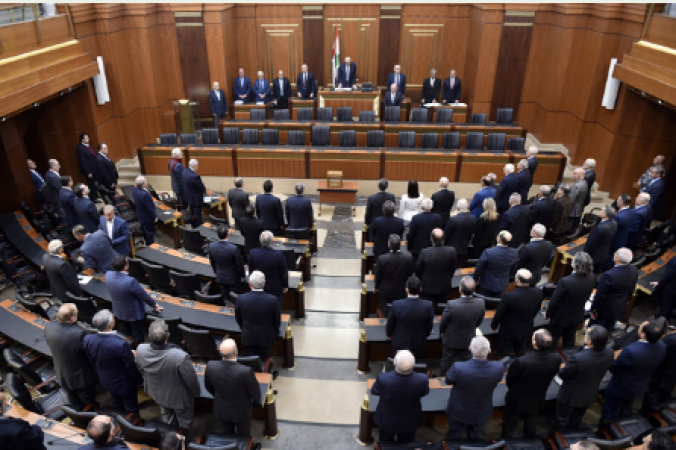
Beirut: On Wednesday, lawmakers in crisis-torn Lebanon will attempt to elect a new president for the 12th time, but the vote is likely to be marred by acrimonious differences between Hezbollah, which is supported by Iran, and its rivals.
More than seven months have passed since Lebanon's last presidential election, which took place on January 19.
Under Lebanon's delicate sectarian power-sharing system, the presidency is reserved for a Maronite Christian. The vote pits Hezbollah-backed Sleiman Frangieh against financial official Jihad Azour, who has primarily received the support of Christian and independent legislators.
Analysts say the vote could further entrench a political stalemate, dimming hopes of resolving the situation because neither side appears to have the numbers to get their candidate over the finish line.
Also Read: Philippines visit by a Chinese navy training vessel
The election of a president at the conclusion of this session is extremely unlikely, according to analyst Karim Bitar.
He added that Wednesday's attempt, like the 11 before it, would probably "only be a way for political forces to gauge their respective electoral weight" and see how many votes they could garner.
Due to the country's long-term administration by a caretaker cabinet with limited authority, Lebanon is currently experiencing a double power vacuum.
Conventionally, the position of parliament speaker is held by a Shiite Muslim, and the position of prime minister is reserved for a Sunni Muslim.
The international community has urged politicians to choose a president who can work with them to enact the reforms needed to enable the country to access billions of dollars in loans from abroad.
Also Read: Indonesia praises Saudi Arabia's concern for Hajj pilgrims
Like many of Lebanon's well-known political figures, Frangieh, a former lawmaker and minister who is a friend of Syrian President Bashar Assad, comes from a storied family dynasty.
Despite his divisive alliances, he promised to be "the president of all Lebanese" on Sunday.
In light of the presidential election, Azour, who served as finance minister from 2005 to 2008, has resigned from his position as the IMF's director of the Middle East and Central Asia department.
The winner needs 86 votes from the 128 members of parliament, or a two-thirds majority, but Hezbollah and its allies have posted spoilt ballots to sabotage previous elections.
Before a second round of voting, where the winner only needs 65 ballots, could begin, quorum was lost.
In the previous presidential election, Hezbollah and its allies used a similar strategy, which resulted in Lebanon going more than two years without a president before Michel Aoun's victory in 2016.
According to Bitar, if Azour receives more than 60 votes, it will be a significant "reversal of fortune for Hezbollah" and will signify significant, interfaith "opposition to Hezbollah hegemony on the Lebanese political landscape.”
But Bitar continued, "At this point, the most likely scenario is a protracted vacuum."
As he announced his candidature for the position on Monday, Azour said he wanted to "contribute to a solution" rather than a crisis.
After Hezbollah referred to him as the "defiance and confrontation candidate," he declared that he was "not defying anyone."
Azour's supporters, according to Mohammed Raad, the head of Hezbollah's parliamentary bloc, do not want him to be elected but rather are "using him" to obstruct Frangieh's path to the presidency.
Also Read: Report: 6,000 civilians killed in Myanmar in the 20 months following the coup
A deadlock in the vote on Wednesday, according to Bitar, could open the door for protracted talks "that would ultimately reach a third-man solution."
Tuesday saw new requests from the US and France for Lebanese lawmakers to work together and choose a new leader.
Anne-Claire Legendre, a spokeswoman for the French foreign ministry, urged lawmakers to "take this date seriously" and "not waste another opportunity."